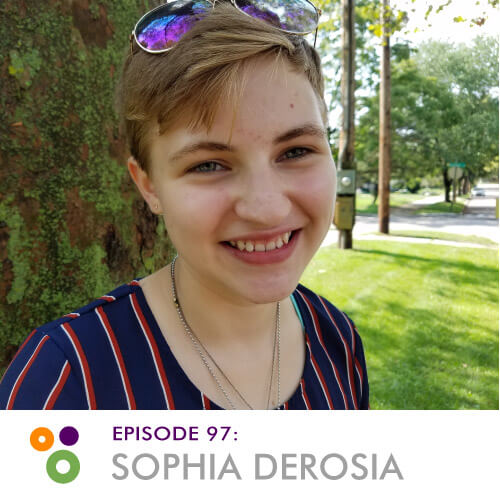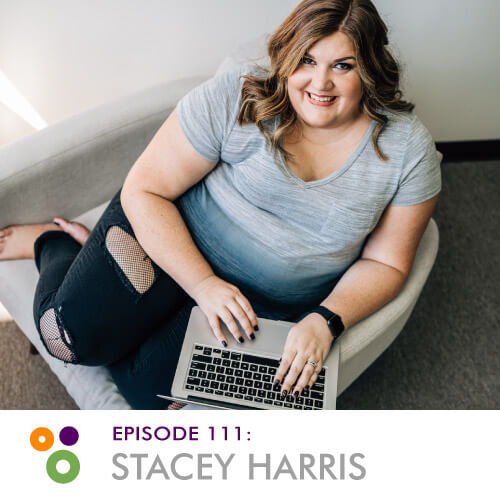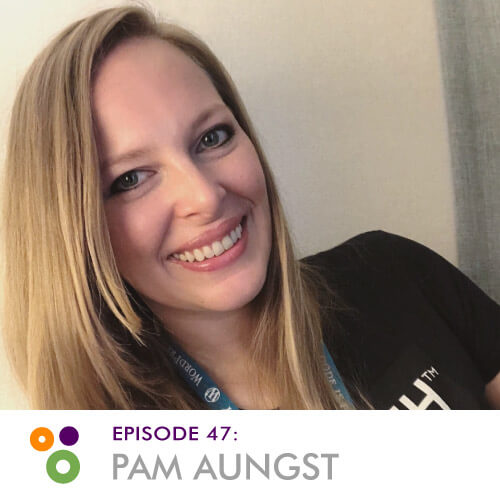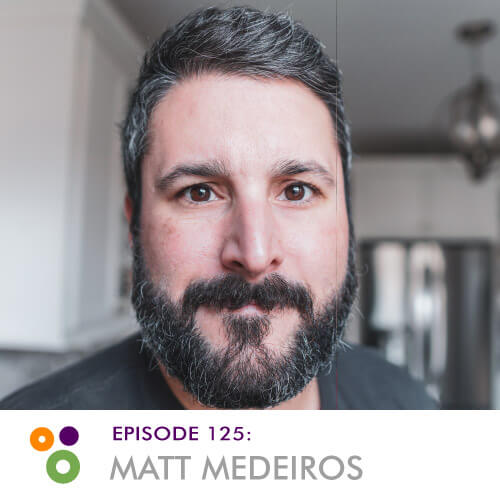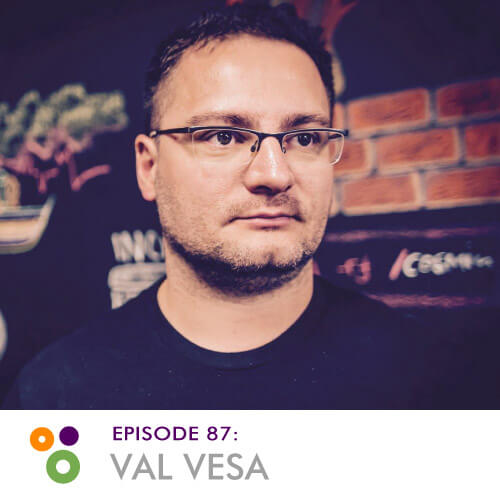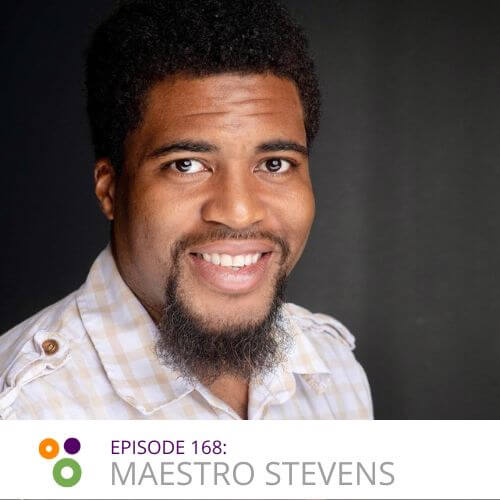Episode 89: Charlie Reisinger
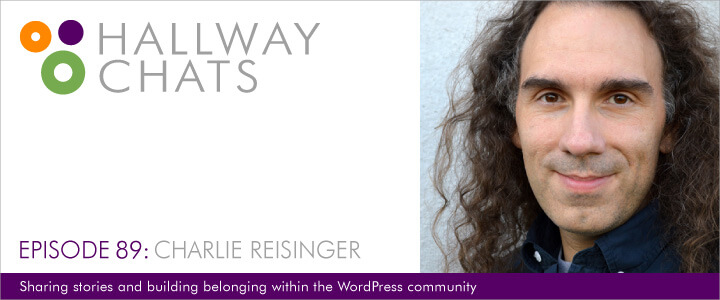
Podcast: Play in new window | Download
Subscribe: RSS
Introducing Charlie Reisinger
Charlie serves as the director of technology for Penn Manor School District in Lancaster County, Pennsylvania. His first book, The Open School House, chronicles more than 15 years of open-source learning programs at Penn Manor.
Show Notes
Book | The Open Schoolhouse
Twitter | @charlie3
Website | Charlie Reisinger
Website | Penn Manor Schools
Episode Transcript
Tara: This is Hallway Chats, where we meet people who use WordPress.
Liam: We ask questions, and our guests share their stories, ideas and perspectives.
Tara: And now the conversation begins. This is episode 89.
Tara: Welcome to Hallway Chats. I’m Tara Claeys.
Liam: And I’m Liam Dempsey. Today, we’re joined by Charlie Reisinger. Charlie serves as the director of technology for Penn Manor School District in Lancaster County, Pennsylvania. His first book, The Open School House chronicles more than 15 years of open-source learning programs at Penn Manor. Welcome, Charlie.
Charlie: Hi, there.
Tara: Hi, Charlie. It’s nice to meet you and have you on Hallway Chats and I’m really excited to hear about what you’re doing, it sounds cool. Can you tell us more about yourself?
Charlie: Absolutely. Thank you again for spending some time with me this afternoon, my day job is the director of technology for Penn Manor School District. We’re located in beautiful Lancaster County, Pennsylvania. My role here as part of the senior leadership team is to oversee our technology operations and our instructional technology programs. My work takes me from the server room to the classroom and just about everywhere in between. I’m fortunate to be in a position where I can oversee programs and policies but also have the time and in many ways, the autonomy to work with students. Actually, I should say our super students are terrific teachers.
Tara: What’s your background? How did you get started in technology?
Charlie: Sure, sure. I came to this position in, I guess, a peculiar way. I am not a technologist or a programmer by training. My undergraduate degree is in psychology and I also had a philosophy minor. My master’s degree is instructional design and design, that’s really the study of the intersection between pedagogy and technology. But I certainly did not. think when I was in college that I would be having a technology program. But I guess by a series of strange swerves, I ended up here and that’s awesome.
Liam: Charlie, you shared that you have an undergrad in psych and philosophy, and a graduate degree in instructional design and technology. I wonder if you came to your job. Did you get into working with the school district as a technologist and then discovered your love of teaching and kind of the intersectionality of that or how did that come about?
Charlie: It was both. When I started Penn Manor School District, it was in 1998 and I was hired as a building technician. The sole focus of my job was to provide desktop and network support for our students and teachers. However, before I arrived here, I was the IT director for a small two-year school that is now part of the Art Institutes. The name of that school is Bradley Academy for The Visual Arts in York, Pennsylvania. And there I had a role that was deeply embedded into both technology and management, but also working side by side with students and teachers. But I think even stepping way back, I’ve always been interested in education. I think that’s a big part of the reason why I got into psychology, because those two disciplines are so deeply intertwined. I’ve always been interested in technology from its communication standpoint. Obviously, I love all things network, and code, and programs, and process. But I think what really got me interested in a true technology route was probably just like many people. It was in the early ’90s when this new internet thing came about. I saw that as a communications medium for people to connect and share ideas and, at its foundation, to learn. I guess where I’m going with this is that for me, technology, education, learning, it’s always been intertwined. And I think some of that was also driven by the fact that I believe I’m the product of the series of outstanding teachers that just instill the love of learning in me. Later in life, as I found new technologies and new capabilities, it just seemed like a natural big ball of connectiveness.
Tara: Where does WordPress fit into this?
Charlie: Ah, where does WordPress? I guess I should start with our WordPress story. We began using WordPress here at Penn Manor in approximately 2007, 2008. I began looking for simplistic tools for our teachers to create websites. And again, I suspected that is not very atypical. That’s probably how many people first arrived at tools such as WordPress. We began using it internally in select sites for select building web pages. I brought up our Penn Manor technology site on WordPress initially. We discovered it to be ridiculously easy to use. It took all of the heavy lifting away from our teachers and it caught on like wildfire. In a couple of years, we started expanding and many of or classroom teachers began using WordPress. We expanded to our school websites all using WordPress. By about 2010, we have brought up all of our school buildings and the vast majority of our teacher web pages on WordPress sites. I’m trying to think back at that time, I think that was still when WordPress Multisite was split out as a separate project and kind of a little bit fuzzy on the dates as to when that happened, but we actually started on WordPress Multisite, WordPress MU before it became Multisite and then later when the projects merged, we went in that direction.
Liam: That’s really neat. That’s going old school. Charlie, I want to touch on one other thing that you and I have talked about before. We’ve known each other a few years now through the open source communities in and around our corner of Pennsylvania. And one of the things that’s always struck me about Penn Manor under your leadership, and I know you just lead the IT section but is the way that the school district engages with the students via technology. That’s very, very different than the way my local school district does it here where my children go to school. I wonder if you can talk a little bit about that and why your school district made the decision to go where it has, what it’s actually doing, and what are some of the benefits you’re finding by going the way you are if you would?
Charlie: Sure, sure. We are not your typical district in terms of our technology programs. We should probably provide some context. I guess the place to start is that we, from a technology and a software standpoint, believe in open source principles. We believe that there’s open source principles should extend to our students’ technology devices. We are one of the few districts, I believe in the country, that are using Linux laptops with our students. We have a one-to-one technology program in grades four through 12 where each one of our students receives a laptop running Linux and open source software exclusively. And we push that even further. Students have those laptops but another thing that we do differently is we allow our students to have root-level access to those laptops, and that differs from most districts across the country that will take devices and lock them down and restrict what students can do with that device. But our philosophy here, not only in my department but across the leadership at Penn Manor and our principles is that we want to give students the opportunity to be able to tinker and explore, to lift the hood of those devices and discover computing. We found the best way to do that is to lift many of the restrictions that you would typically find on a school laptop and allow students to directly interact, tinker, and experiment with their school-owned devices.
Liam: Charlie, I’m just going to interject and talk a little bit about root access and clarify that. That really just means that the students can do whatever they want. So if they want to add programs, they can add programs. If they want to delete programs, they can delete programs. If they want to install an extension in Firefox or Chrome, they can do. Although I don’t know that those were on Linux necessarily. But they have complete control so it’s not, for example, a standard school district where you say, “You can use these programs in these ways and can only communicate via these systems.” They can really do whatever they want with it.
Charlie: That’s exactly correct. Obviously, we have policies around responsible use of technology. That’s not to say that we don’t provide and enforce web filtering for sites that students obviously should not be visiting. All these rules and policies apply. Security, password management, not stealing someone else’s ID. But as you said, the core of our program is that students have incredible levels of autonomy on their devices. With root access, there are local admins, so if they want to program, they can install it, they have full access to the command line. If they want to run a local lamp stack and run WordPress, they could do that on their machines. Our philosophy has been to give our students as much control and agency over devices. And again, as you know, that’s very dissimilar from most districts that highly restrict what students can do on their device. And that just doesn’t fit our model of education and open learning.
Tara: That’s fascinating. Do you find a lot of kids take advantage of that? Do you have a disproportionately high number of kids coming out coding and things like that because they have that access?
Charlie: See, now that’s an interesting question because you would hope, we would hope that more and more students would take advantage of it. In some ways, it’s a little depressing. What we’re finding is that very few students understand the power that they have in their hands. And that’s in spite of us trying to help educate them about what they can do when the capabilities that they’ve been given. I sort of have a running theory on that. I think, as our technology is becoming more simplified, it’s moving students further and further away from the raw materials of a computer and computing. And they just don’t understand that they have, again, the autonomy, the agency, the ability to go in and play with the dials. Some of that, I think, is in our tablets and our cell phones, we’re removed. The interface is so abstracted from the undergirds, the computer, the raw programs, the raw operating system, console games, PC games. Our technology tools are becoming very app-specific and I think we’re losing something in that, and that is the ability to, again, lift the hood, to go deep or really understand computers, and operating systems, and code, and essentially, all of those powerful forces that are making decisions on our behalf and on our students’ behalf.
Tara: Yeah, that doesn’t surprise me. We’ve spoken to a number of people on this show who are of a little bit older generation, maybe in their 30s and 40s who tell stories of being in middle and high school and taking apart computers and putting them back together, and doing lots of stuff that I know, for myself having children who are recently finishing school, that that was never anything that was popular to do, or I didn’t know any kids who do that and I think what you’re describing in terms of the way that technology is used now is taking people away from that. How many students are in your school district?
Charlie: We have about 5400 students. That’s K through 12. Our composition is we have seven elementary schools, two middle schools, and one high school facility.
Tara: Yeah, that’s pretty small district relative, I guess.
Charlie: Yeah, it’s interesting. For Pennsylvania, we’re large because there’s a number of school districts that are under 2000 students, but relatively speaking, as you look out across Pennsylvania, we realize, we obviously don’t compare to a School District of Philadelphia or a Harrisburg School District, or the others.
Tara: Are you involved in the local WordPress community or do you have your students get involved? Do you know if any of them are– I know Lancaster does have a vibrant community.
Charlie: Absolutely. I’ve been involved in the Lancaster WordPress community for a number of years. I’ve helped and I’ve been involved with WordCamp Lancaster, I’ve spoken at WordCamp Lancaster. It’s just a terrific local community that we have. I try to get out to the Philadelphia region as much as possible. Yeah, obviously, I try to speak, I try to support it as best I can given my schedule. But I think the second question is more interesting. How can we get more students involved? And that’s just proven to be difficult. Our students have been involved for the past decade or so as content creators, but moving them beyond using WordPress at Penn Manor to maintain our high school newspaper or maintain a classroom site or maintain a site for our one-to-one helpdesk or student helpdesk, that’s just alluded us. Some of that or the restrictions of time and where we can get that to fit into the curriculum. Some of it is just the development or the time effort that takes to bring students up to speed really to be able to understand more complicated application like WordPress. We keep working at it, though.
Liam: Yeah, it’s a challenge. There’s a lot of aspects to get in there. Charlie, I want to ask you one of our questions that we like to ask all of our guests and it’s around success. I wonder if you can share with us your definition of success, whether that’s a personal definition, a professional definition, or maybe a mix of two?
Charlie: On a personal level, success for me is pretty simple. I have a terrific wife and daughter. That is success. I’m very fortunate in my personal life. On a professional level, I feel successful when I know that I’ve helped our students reach their potential. I think a big part of that is helping students discover both what they’re capable of and also what they may fall in love with. I think a large part of our job as educators is not just simply around curriculum and content, but it’s around introducing students to ideas, pointing them in new directions. I think I’ve been successful, as I said before, is because along the way, I’ve had amazing teachers that saw I may have an interest and they just fed that interest, gave me the space to explore, the space to learn. So now as an adult and working with students and teachers as well, I try to create those environments for our kids and introduce them just to new things and new ideas. That, to me, is success. If I can act as a learning and knowledge mentor, I’m a happy guy.
Liam: Yeah, I can imagine that. To see the eyes of a child light up when they get it or they start to imagine, “Well, if A is true and B is true and I just learned C, oh my gosh, what about D, E, and F?” That must be really rewarding. And I love the simplicity of your personal definition. I have a wonderful wife and daughter, success. I love it.
Charlie: Success. What more can we ask for, right? We have partners and great kids, yeah.
Liam: that’s fantastic. I want to ask you if you can share with us. You might need a minute to think so I’ll try to stretch this question out. You’ve talked about success as helping a child, a student reach their potential or see their potential or understand it. And I wonder if you have an example or two of a child who just absolutely blew your mind when maybe you opened the door half an inch, so to speak, or whatever that analogy is, and that child went somewhere that you just, wow, wow, wow. Something like that?
Charlie: Absolutely. I’m going to probably rattle off a couple examples.
Liam: Go ahead.
Charlie: We recently had a student who was working as part of our one-to-one helpdesk that was at a conference a little bit over a year ago, it was the Central Pennsylvania Open Source Conference. He heard a talk on software-defined radio, so essentially, capturing radio waves over the air and processing them. He was so inspired by one of the speakers that as he was working with the helpdesk, that’s the project he wanted to work on as part of our one-to-one helpdesk course. It’s really like a work-study at our high school. I gave him the space to run. Gina Costalitch, who is the day-to-day student mentor at the helpdesk gave him the space to run on, we gave him materials. And he was so interested in this and so dead set on capturing satellites as they were passing over the Earth, that he created this little satellite capture ring that he threw into a backpack and he was in the evenings when he was on his work breaks, he was running outside trying to capture satellite passes. He was looking for the NOAA Weather Satellites. So he was so consumed and this is just what he wanted to do. He got close, he didn’t get a really clean satellite pass but that was just terrific to see him run and just to see him fall in love with this whole concept of pulling radio waves down over the air and being able to capture them. It’s projects like that. We had a couple of students recently that were working with ROS, that’s the Robot Operating System, and they were working on– we challenged them to create a self-driving car with a little robot called the Turtle Bot, and that was a terrifically complicated project. But watching those students just stick with that and work with that and persevere and just completely struggle with an incredibly complicated open source instead of software to make that work, that was another great example. How much time do we have? [laughter] Recently, we’ve had another student. I love this one, this was a student that joined our course who had never touched Blender before. Blender is an open source 3D modeling program. Again, terrifically complicated. She never thought that she would be able to make anything work animation-wise inside this program. And at the end of the course, she had a working model that she was just beaming with excitement. There’s just so many examples. One other one.
Liam: Go for it.
Charlie: If I may.
Liam: Please do.
Charlie: A student who– her passion is role-playing games and she created essentially her own Roll20. If you’re not familiar with that, Roll20 is an online tool for managing role-playing games. She was just so fascinated by creating her own system that she built her own code and released it open source on GitHub for others to start using. I knew that she was deeply involved in the project and that she was completely consumed because she was responding to questions via GitHub over the summer. [laughter] How many students do you know that are working on their school projects in the middle of July?
Tara: That’s amazing.
Charlie: So we should have a whole separate podcast on student examples but I’ll leave it with just those four.
Tara: That is really cool. Not to be like a downer but what’s the biggest challenge that you face?
Charlie: Yeah. I think our challenges are the same as most every school. It’s finding a balance our resources, our time, and what the state says what our curriculum demands that we do. And it is challenging because we want to make sure that we provide a well-rounded education for our students. But how do you balance getting all of the requirements in, but at the same time, giving our students that space to play, and run, and explore. We all in education find that very challenging. We tend to be a mile wide with our curriculum but unfortunately, only an inch deep and we keep jamming more and more information into our curriculum, and it gets tough when you just know that students want to run with these projects and spend a day or two or three doing nothing but coding or exploring a robot. So how do you balance that? That’s truly the challenge.
Liam: Yeah, I can imagine that for teachers where this child wants to go deep on this subject, whether it’s math or history and yeah, that’s great. But by doing this, they were on to the next chapter because we’ve got to cover the next battle, or the next war, or the next economic focus.
Tara: Yeah, teaching for the test.
Charlie: And what do you do? Because everything is important. It’s not like math isn’t important, science is obviously important. So as we jam more and more to the curriculum, it gets harder and harder to make decisions about what is the most important. Oh, and by the way, we want to provide students space and time to work on personally meaningful projects. Yeah, it’s tough.
Tara: Yeah, are the kids stressed out more than they used to be as a result?
Charlie: Oh, I think absolutely, absolutely. Just, I’m not going to guestimate on the ages of the folks in this call at the moment, but I’ll go first and sort of date myself. I’m in my mid-40s. For those of us in this general age range, I think many of us would discover that education is a very, very different place from what it was when we were younger. And I think there are many, many more stressors on kids. In fact, without a doubt, there are many more stressors on kids. Not only a complicated wide curriculum, but just society’s more complicated. And it stresses our kids, there’s no question about that.
Tara: I think we often think that they have it easier because there is all this technology right at their fingertips, but that may be in some ways– it may make some things easier but the mental stress of having social media all the time and all those things, I think we may underestimate that. There’s a lot written about it but it is, I know.
Charlie: Well, that’s huge and that’s another problem we didn’t have to contend with when we were kids. Now, our lives are publicly broadcast all the time. Speaking for myself only, I can’t imagine if some of the silly things that I did as a kid were potentially on public display. And I don’t think I did anything that bad but I mean, everything out of context, that’s a whole level of pressure that those of us that aren’t growing up today just don’t understand.
Tara: Yeah, I would not want to be growing up today for that reason, it’s hard.
Liam: Yeah, absolutely. And I think when we were growing up, not everybody went to college, and now, I have no idea the percentage-wise, but such a greater percentage of high school graduates go to college and I can only imagine that, that ups the competition for those spaces. But let me change gears a little bit back towards WordPress if I can and Charlie, I’m going to ask you a big question and just pick your brain a little bit. What can WordPress community do to engage a student in a way that you are struggling? You’ve mentioned that you struggled to get them to do content or to get involved with that because it’s a more involved system, at least on a wider level, and you said that not a lot of the students are engaged with their local WordPress community. And okay, some of that’s just going to be the naturing of schedules and high school versus working adults, but what are your thoughts on that?
Charlie: Yeah, that’s a challenge. I should probably back up and talk a little bit about how school districts operate and just websites in general. Early on, I mentioned we do things differently here. WordPress doesn’t specifically feature in public schools. The reason for that I think is two-fold. Public schools at the executive decision level– let me back up. I’ll start here. Public schools often have no idea that WordPress even exists, and I think that’s really the root of the problem. Schools tend to make decisions based on what everyone else is doing. Most of the policy makers and decision makers don’t understand open source software in general, and open development communities, let alone individual applications and platforms like WordPress. Just if you want to get it at root cause of that, education and awareness is the place to start. Teachers just don’t know WordPress. Even some of our teachers today, even though we explained how to run a WordPress site and all that, they just know they go to make a web page. So I think getting– and we try and do that in our work, to talk a lot about open source software in general, obviously, WordPress and other tools just to educate other school district administrators and super intendants at wards. I think that’s really the place to stat because once the district is educated, then teachers can make more informed decisions about the tools that they’re using. I think that’s probably the answer but it’s also the largest challenge.
Liam: Yeah, increased exposure can be a challenge to get the attention and hold it and come back to it often enough.
Charlie: Yeah. And it’s, too, if you put yourself in the position of–I’m fortunate here. We have a very open collaborative leadership team. Our superintendents, assistant superintendents, I believe we’re very open to new ideas. But not every district is like that. Most boards and most superintendents, most IT directors, the leadership team is going to be looking at what other schools are buying. And often, they are buying pre-packaged off-the-shelf web toolkits because it checks the box. “Okay, well, we know we need to have a website.” Let’s outsource that to a company that ‘specializes’ in school websites. Likely, that is their own whatever custom software package. And again, they just check the box. That’s off the list.
Liam: Yeah, I see that a lot and that’s a whole another podcast right there, isn’t it?
Tara: Yeah. I have a friend who’s a teacher and I hear all the time complaints about the different things. I think some of their stuff is WordPress and all the different kinds of blackboard canvas, all these different things that the schools try out. They have to learn something new very frequently so I think it’s a challenge you can’t please everybody in, people learn different ways.
Charlie: For us, just to kind of pull it back to us very specifically. I’ll give you an example, for schools to purchase a web platform for their students, for their school buildings, for their district, you could be looking at school of our size easily $20,000 a year. I mean, there’s no question. And that would obviously be whatever hosted package is out there. We’ve been on WordPress now for well over 10 years. I look at that as every year, we’re saving approximately $20,000 and those cost savings for us have stacked immensely. Every time that I choose an open source software package and it fits our needs, whether it be WordPress or Moodle or many of the other tools that we run here. I tend to look at those cost savings as a way just to find our teachers. $20,000 is a huge chunk of a teacher’s salary. I look at it, obviously, WordPress is a terrific platform. That’s without question. But at the same time, for schools, WordPress is a tremendous gift both in its flexibility and its capability but also as a massive cost savings for public education.
Liam: Yeah, absolutely. Charlie, we’ve got a couple of minutes left here. I want to ask you about advice. The focus of the question really is advice that you’ve received. What’s the best advice that you’ve received or read or found and successfully implemented in your life?
Charlie: I actually want to tell a story because the advice that I received that is most– it was not someone taking me aside and saying, “Hey, Charlie, try this. Or did you think about this? Don’t do that, you should do this.” I think my best advice came in the form of an opportunity that an elementary teacher provided me when I was very young. The first subject that I ever fell in love with was astronomy. And I’m still a big astronomy buff. But when I was in elementary school, I was absolutely convinced I was going to go to Cornell University, I was going to study astrophysics. That was what I was going to do. And I had a teacher in elementary school, her name was Peg McCain, who saw my love and saw me talking about this, and saw that I was reading up on astronomy and I just couldn’t get enough of it. And talked about it during science, she saw that I had this interest and she gave me the opportunity to present a miniature lecture on the solar system to fellow sixth-grade students. That was life-altering for me. And I didn’t really– maybe I got it then as an elementary student, but later in life, I realized how profound that was because she gave me the space and the time. I don’t know, she just believed that, “Hey, we have a kid who’s really interested. Let’s remove the barriers from him talking about this.” I think it wasn’t advice so much as, “Hey, I trust you. What you have to say is important. You have a voice, you have an interest. And just go for it.” There I was, standing up in front of, I don’t know, 100 kids talking about the solar system.
Tara: What a great story. I love hearing stories about teachers like that and the ones that we remember years later. When I think about my friends that are teachers, I always think what a great gift they will have one day when they’re old and retired and they think about how many children’s lives they had an impact on. That’s a great rewarding thing.
Charlie: It really is. I don’t know that we so much remember what people say to us as we do how they make us feel. And that’s what I really remember. It wasn’t what she said so much as just the feeling of empowerment that I had. And for a young kid, that’s world-altering. That what you have to say is important and you can do this and just go for it, and it wasn’t any specific line or phrase, it was just, “We’re going to allow you to get in front of your peers and give a lecture on astronomy.” Who does that?” Well, this teacher had the courage to do it and I just absolutely never forget that.
Tara: I love that line that you don’t remember so much the words people say but how they make you feel. What a great way to wrap up the show today because we are out of time, but I really loved that and I’m glad we’re taking that away as our final thought. Thank you so much for joining us today, Charlie, and sharing your story, and all that you’re doing in your school district. Where can people find you online?
Charlie: Sure. On Twitter, I am @charlie3. You can also find Penn Manor technology website at Technology.pennmanor.net and if you are interested in all things open in schools, you can check out my website The Open School House. I did write a book about that. Again, if you’re interested in schools and technology, I hope that would prove to be a useful resource.
Tara: Excellent, thank you so much.
Liam: Thanks so much, Charlie. What a great time to spend with you. Thanks for your time, this afternoon.
Tara: Bye-bye.
Charlie: I appreciate it. Thank you again, bye-bye.
Liam: Bye.
Tara: If you like what we’re doing here – meeting new people in our WordPress community – we invite you to tell others about it. We’re on iTunes and at hallwaychats-staging.ulpgsyz6-liquidwebsites.com.
Liam: Better yet, ask your WordPress friends and colleagues to join us on the show. Encourage them to complete the “Be on the show” form on our site, to tell us about themselves.
